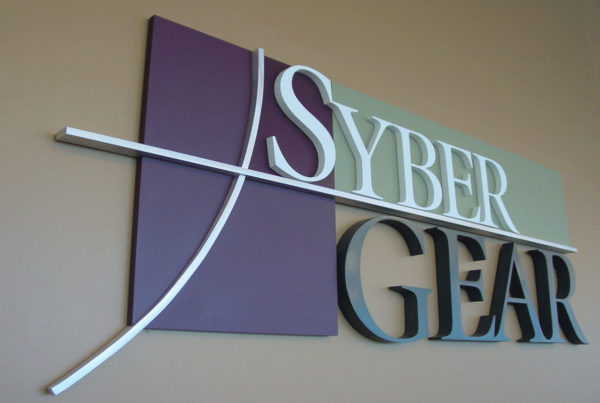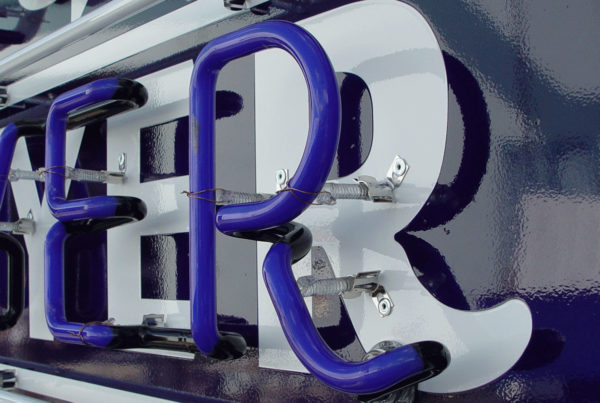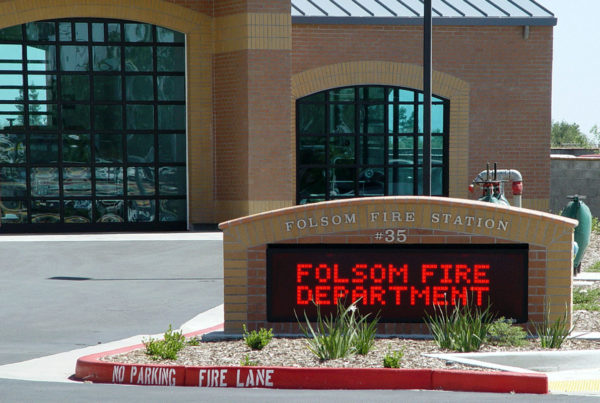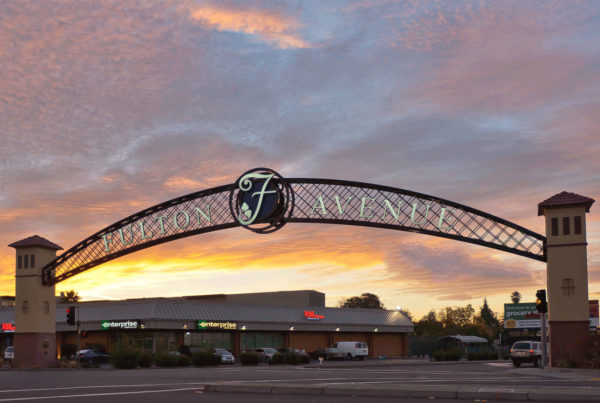 Touring Ellis & Ellis Signs Systems is a touch surrealistic. Familiar symbols are everywhere in unfamiliar places. A sign never seen outside of an airport points the direction to rentals cars, a luminescent “Golden 1” straddles a huge worktable, a sculpted plastic pillar bears the name “Mikuni.” Fifty employees of the factory make these and other signs everyone everywhere from the Bay Area to Reno sees every day. Probably no company’s work is more noticed and at the same time less recognized.
Touring Ellis & Ellis Signs Systems is a touch surrealistic. Familiar symbols are everywhere in unfamiliar places. A sign never seen outside of an airport points the direction to rentals cars, a luminescent “Golden 1” straddles a huge worktable, a sculpted plastic pillar bears the name “Mikuni.” Fifty employees of the factory make these and other signs everyone everywhere from the Bay Area to Reno sees every day. Probably no company’s work is more noticed and at the same time less recognized.
Ellis & Ellis Signs Systems is a family-owned business, the first Ellis being father Burr, who founded the company in his home more than 40 years ago as a moonlighting venture to his job as an insurance agent. “I like to hunt, and you know, when you’re married with kids, money for that was a little hard to come by,” says Burr, who worked in insurance for 17 years. “I started off building billboards. In those days you could build about anywhere. Permits weren’t that hard to get.”
If building billboards seems a stretch from insurance agent, consider also Ellis & Ellis Signs Systems offers expertise in mechanical and electrical engineering, architecture, heavy construction, masonry, computer graphics, and metal, plastic, and glass sculpting. “Just learned by experience,” Burr says of his mastery of this steep learning curve. He mentions that his upbringing in a family of tradesmen conferred some bits of information (such as how to build a house from scratch) that proved to be useful to his business.
The second Ellis is son Bret. From childhood, he took to sign-building like a Kennedy to politics. Even while attending college full-time, Bret worked at the company 40 hours a week, and it is not surprising that he believes the secret of good management is, “Never ask your employees to do something you wouldn’t do yourself.” In a business that requires the teamwork of highly specialized and diverse technicians, craftsmen and tradesmen, employee loyalty is synonymous with success, says Bret. Of course, there are some jobs employees do that Burr and Bret would but can’t. Creating glass lettering for neon is one. Designing signs is another. “Between the two of us, we couldn’t draw a box,” Bret said.
The Ellis’s can point to their work everywhere throughout the region. They include signs for the Harris building in Oakland, the sign for Six Flags/Marine World in Vallejo, the Jelly Belly sign in Fairfield, the Park Place sign in Natomas, the Sunrise Marketplace sign in Citrus Heights, the Creekside Center and Century 14 signs in Roseville, and signs promising jackpots in Reno casinos. Moreover, the profession abounds in the human interest that comes from dealing with customers as varied as their projects.
“For instance, Universal Studios was interesting,” Burr says. “We made a Frankenstein for them.”
“And a tyrannosaurus. And a Curious George and some others – to identify their garages,” says Bret.
“The dinosaur is 16 feet high,” Burr says. “Right there in the entrance. You can’t miss it.”
“You can’t miss any of them. That was the point,” says Bret.
Each Ellis can take an architectural design and hands-on engineer it, fabricate most of it, and install it in the field, including the operation of the company’s 90-foot cranes. Says Bret: “People for the most part don’t realize what goes into making some of these things – from the estimate, to the concrete, to the steel, to the fabrication, to the cranes, to the electrical conduits, and panels and photocells.” Even simple placards such as “Men” and “Women” on restroom doors are not as simple as they look. Most people don’t notice these signs embody Braille, for which the Ellis’s have a machine for translation and two processes for application – simple perforations and the embedding of the glass beads.
Moreover, there is little room for error in a business whose work must meet the standards of a battery of inspectors. “First – before they go out – all signs need a UL label,” Bret said. “Underwriters Laboratories inspects all finished signs randomly once a month. Second the county inspectors, who must sign off on a sign during installations. And, if there is onsite welding, there must be a special inspection, which becomes a coordination thing because the welder has to be there with the inspector. Your rods have to be in the heater. You have to use certain size rods. That’s part of the structural inspection. Then you have an electrical inspection.”
Little wonder that the Ellis’s’ biggest peeve is the cost of workers’ compensation and health insurance.
Magnifying their peeve is the irony that Ellis & Ellis would be awarded every public contract if the one doing the awarding were Sacramento County’s water quality inspector. The Ellis’s installed a $33,000 water reclamation system that ensures the water disposed by their factory meets water quality standards. “We did this and only afterward – stupidly – asked the inspector, ‘What are other sign companies doing?’” Bret says. “He looked at us blankly and said, ‘What other sign companies?’” Bret pulls back the lids of the system’s containment compartment that is fulminating with sludge. “Somewhere out there this stuff is going down the drain,” he says.
It’s commitment to environmental safety aside, Ellis & Ellis is distinct from the vast majority of sign-makers in California and Nevada because “We do everything,” Burr says.
“So when we say a job will be done at a certain time, it is done,” Bret adds. “We can’t point to the delay of some subcontractor.”
“And if the customer wants changes, we’re there to do them,” Burr says.
“Right now,” Bret says, “We do things some companies would walk away from. We do them because every job we do has our name on it.”








